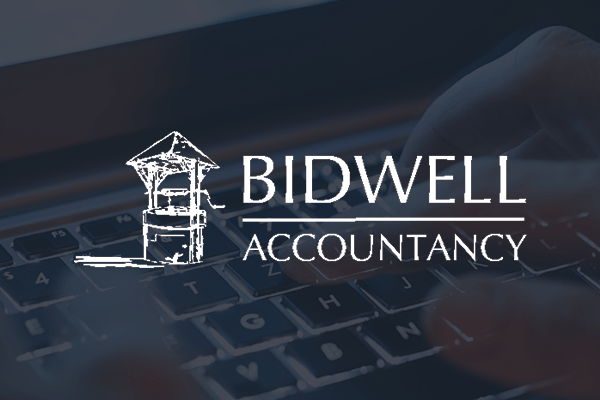September Newsletter

September's newsletter coincides with that ‘back to work’ feeling that always follows the summer: we hope you’ve managed a break and are ready for Q4 of 2022. We welcome two new team members here at Bidwell Accountancy. Links to our article page which you might find useful information. We bring you news of proposed changes to how capital gains are treated during a divorce or separation. In essence, the pressure to act quickly will be reduced. There’s a sombre look at further expected inflation with suggestions on how to manage it. To combat some of the rising costs we’re likely to face, you may be able to take advantage of some tax-free schemes or the Rent-a-Room Relief we’ve also mentioned below. Finally we conclude this month’s newsletter with some diary dates and deadlines, taking us into October.
New Team Members
Last month we welcomed Kierah and Kyle to our team as Assistant Client Account Manager while working towards their accountancy qualifications.
Latest Blogs
Throughout the month we release blogs on our website which will feel may help you with running your businesses.
Please make sure you like our Social Media pages to get the latest blogs as soon as they are released.
All our blogs can be found on the link below
Please see links to our latest blogs below
- Should I get an Electric Car?
- Understanding your balance sheet?
- Should you move your rental properties into a limited company
- Keeping your business cash liquid – the difference between cashflow and profit
Change to capital gains on separation or divorce
Under present legislation any transfer of assets between couples who are separating, or divorcing are free of any Capital Gains Tax (CGT) liability as long as the assets are transferred during the year of separation/divorce.
This places undue pressure on couples to complete these transfers in time to qualify for the CGT exemption. Based on recommendations from the Office for Tax Simplification, the Finance Bill 2022-23 aims to correct this by enacting the following changes:
- separating spouses or civil partners be given up to three years after the year they cease to live together in which to make no gain or no loss transfers.
- no gain or no loss treatment will also apply to assets that separating spouses or civil partners transfer between themselves as part of a formal divorce agreement.
- a spouse or civil partner who retains an interest in the former matrimonial home to be given an option to claim Private Residence Relief (PRR) when it is sold.
- individuals who have transferred their interest in the former matrimonial home to their ex-spouse or civil partner and are entitled to receive a percentage of the proceeds when that home is eventually sold, be able to apply the same tax treatment to those proceeds when received that applied when they transferred their original interest in the home to their ex-spouse or civil partner.
If these changes are confirmed, they will apply to disposals that occur on or after 6 April 2023.
Inflation
To keep your earnings in sync with increases in prices is becoming progressively difficult. Most individuals - whether employed or self-employed - would find it unrealistic to secure pay rises (if employed) or price increases (if in business) unless the demand for their goods or services was high.
If most taxpayers cannot match price increases by keep earnings in sync with these increases, then their purchasing power will gradually reduce.
This autumn, cost pressures are likely to continue, particularly utility costs. And will force many of us re-examine our budgets and try to figure out how to balance our books without meeting excess expenditure by maxing-out credit cards or entering into expensive loans.
One solution may be to investigate creating additional income streams. For example:
- Turn a hobby into a part-time business.
- Rent out your driveway as a day-time parking area.
- Rent a spare room in your house.
There are tax concessions that may make these activities tax-free. See the “£2,000 tax-free income” and “Rent-a-room” articles in this newsletter.
You could also search for ideas and assistance online. HM Government Money and Pensions Service has launched a Money Helper website at
£2,000 tax-free income
There is no tax to pay on trading income or earnings from land and property as long as the income from each source does not exceed £1,000.
Trading allowance
The trading allowance is a tax exemption of up to £1,000 a year for individuals with trading income from:
- self-employment.
- casual services, for example, babysitting or gardening.
- hiring personal equipment, for example, power tools.
This allowance does not apply to trading income from a partnership.
Property allowance
The property allowance is a tax exemption of up to £1,000 a year for individuals with income from land or property.
If you own a property jointly with others, you are each eligible for the £1,000 allowance against your share of the gross rental income.
If you have two businesses and claim the property allowance in one business, you may not claim actual expenses in respect of the other business.
You cannot use this allowance on income from letting a room in your own home under the Rent a Room Scheme.
Rent-a-room Relief
The Rent a Room Scheme lets you earn up to a threshold of £7,500 per year tax-free from letting out furnished accommodation in your home. This is halved if you share the income with your partner or someone else.
You can let out as much of your home as you want.
The tax exemption is automatic if you earn less than £7,500. This means you do not need to do anything.
If you earn more than this, you must complete a tax return. You can then opt into the scheme and claim your tax-free allowance. You do this on your tax return.
You can choose not to opt into the scheme and instead record your income and expenses on the property pages of your tax return.
You may need to calculate the tax effects of both options if your gross rental income from letting a room or rooms at home is more than £7,500.
Tax Diary September/October 2022
1 September 2022 - Due date for Corporation Tax due for the year ended 30 November 2021.
19 September 2022 - PAYE and NIC deductions due for month ended 5 September 2022. (If you pay your tax electronically the due date is 22 September 2022)
19 September 2022 - Filing deadline for the CIS300 monthly return for the month ended 5 September 2022.
19 September 2022 - CIS tax deducted for the month ended 5 September 2022 is payable by today.
1 October 2022 - Due date for Corporation Tax due for the year ended 31 December 2021.
19 October 2022 - PAYE and NIC deductions due for month ended 5 October 2022. (If you pay your tax electronically the due date is 22 October 2022.)
19 October 2022 - Filing deadline for the CIS300 monthly return for the month ended 5 October 2022.
19 October 2022 - CIS tax deducted for the month ended 5 October 2022 is payable by today.
31 October 2022 - Latest date you can file a paper version of your 2021-22 self-assessment tax return.

Unit 157, Milton Keynes Business Centre,
Foxhunter Drive, Milton Keynes,
Buckinghamshire, MK14 6GD
Bidwell Accountancy









